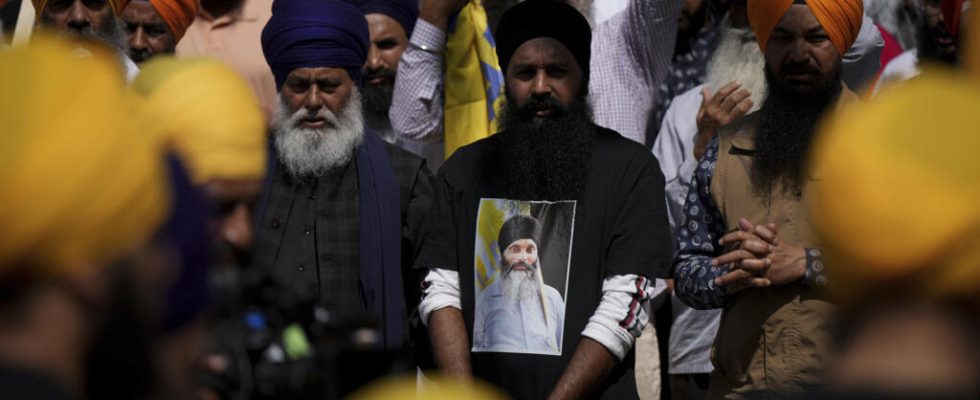As tension rises between India and Canada, who have each expelled a diplomat, the Canadian Prime Minister asks New Delhi to take this matter seriously.
1 min
It all started on Tuesday, when Ottawa suggested that the assassination in June in Canada of a Canadian national of Sikh origin had been carried out by Indian services. Hardeep Singh Nijjar campaigned for the independence of Punjab in India.
Sikh organizations, for their part, are demanding that the culprits be brought to justice in Canada, explains our correspondent in Montreal, Pascale Guéricolas.
The Canadian Prime Minister, however, seeks to calm things down: “ We should remain calm, anchored in our democratic values, in the principles of the rules of law “, said Justin Trudeau.
A reassuring tone to talk about the investigation into the assassination of the Sikh independence activist. Questioned by reporters, but also by the leader of an opposition party, he nevertheless refuses to reveal the evidence communicated to him by the Canadian intelligence services.
Read alsoTensions between India and Canada, both countries expel diplomats
The latter had also warned Hardeep Singh Nijjar that he was the subject of a conspiracy, as his lawyer suggested. Which makes Sikh representatives in the country say that the government must take more measures to protect them.
This community of approximately 700,000 people represents a third of the Indian origins in Canada, as political scientist Serge Granger explains.
The reality of a Sikh separatist epicenter outside India is mainly in Canada. And historically speaking, Vancouver and San Francisco have always been the epicenter of Sikh separatism.
The Prime Minister’s call for calm is partly explained, according to the researcher, by the fact that he fears tensions between supporters of a united India and separatists from Punjab.
India, behind the assassination of a Sikh activist in Canada in June, as the Canadian government claims?
New Delhi rejects the accusations outright. But the case puts the spotlight on a community that has for years sparked tensions between Ottowa and New Delhi. Canada is home to the world’s largest Sikh diaspora, and some members, like the slain leader, are calling for statehood in the Punjab region, on the border with Pakistan.
According to the latest census carried out in 2021, approximately 770,000 people living in Canada claim to be of the Sikh religion. This Indian community therefore has a certain demographic weight, but also political influence. When Prime Minister Justin Trudeau came to power in 2015, he took four ministers of Sikh origin into his cabinet. The current leader of the center-left New Democratic Party, Jagmeet Singh, is also a Sikh.
This community also includes supporters of a separatist movement, the Khalistan movement, which demands an independent Sikh state in the Punjab region. The murdered activist Hardeep Singh Nijjar was a figure in this banned movement in India.
New Delhi considers its followers to be extremists, even terrorists. Moreover, the Indian government was prosecuting Hardeep Singh Nijjar who, when he was assassinated, was allegedly organizing an informal referendum in Canada on the creation of a Sikh state. New Delhi had offered a reward of around $16,000 for information leading to the activist’s arrest.
